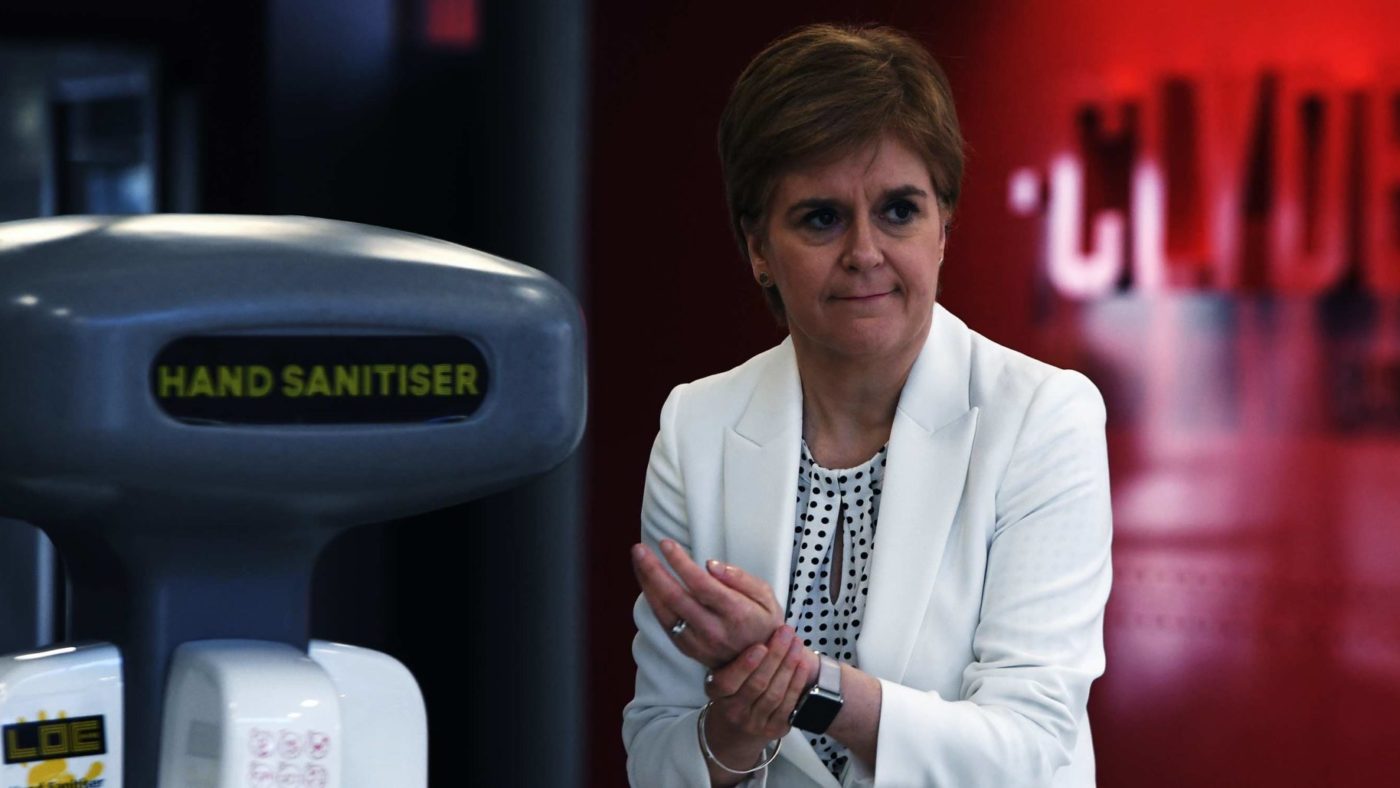Like many other political actors around the world, the SNP are looking to make electoral hay from the ongoing pandemic, and, they hope, bring a second independence referendum closer to reality. And from their point of view, it seems the sooner the better.
Since the Westminster election of 2019, a slight majority of Scots now favour leaving the Union. The nationalists know that may not last, so want to seize the moment while they can.
But in service of their aims, the SNP have employed a number of distortions and outright fabrications that need to be debunked.
First, the conspiracy theory of a Westminster “sabotage”. The principal criticism of Scotland’s handling of the pandemic has been the shortage of PPE (Personal Protective Equipment). In response to this criticism, the SNP have pushed the narrative through their media (not least the front page of The National) and social media channels that English firms were restricted by Westminster from selling PPE to Scotland. This malicious untruth was allowed to fester for two days before any SNP official or friendly media outlet corrected the record. Though by that time, this absurd narrative of a plot against Scotland was thoroughly embedded in the public imagination – as was probably intended.
Then there is the suggestion that Scotland has shown the rest of the UK how to handle crisis. The Nationalists have implied that Scotland has developed its own unique response to the crisis which differs from England, so our death rate is lower. The idea is supposed to go like this: “Health is fully devolved in Scotland, we are more competent, so we have saved more lives”. There’s just one problem with that narrative: the Scottish response has been virtually identical to the rest of the UK. A much more likely explanation for a very real divergence in outcomes is demographics: put simply our population is much smaller and much more spread out. To say nothing of the fact that Scotland sees orders of magnitude less international travel than London, the original viral hotspot on these islands.
This distortion is evidenced by the behaviour of the Scottish Government Covid-19 Advisory Group, which was set up by Nicola Sturgeon in response to the pandemic. As things stand right now, their advice has not yet diverged from the UK government’s strategy. For the time being, their existence largely serves only the purpose of political optics: that is to suggest that Scotland has a fully functioning and independent government that can handle the biggest crisis on its own.
Then, we have the amusing canard that the SNP response to this crisis has been above politics. We have already seen how the SNP has sought to deflect criticisms towards Westminster while looking to make the most amount of political gain from our relatively fortunate health outcomes. But they nevertheless insist that they are holding back from their normal political agenda, i.e. calling for a second independence referendum, while the crisis is ongoing. This is meant merely to placate the party die-hards, at a time when Sturgeon has no leverage or mechanism to legally pursue a second independence vote. Sturgeon knows that on that issue she cannot do anything except to play for time. And this crisis is giving her the cover to do just that.
Make no mistake, though, the SNP are still playing a cunning long game here. Sturgeon has the right political instinct to dial down the talk about another referendum for the time being, when making such promises to the Scottish people would sound both hollow and callous. And she is adeptly playing the ‘bringing the country together’, ‘healing the nation’ narratives. Ideally, she would hope this will make Westminster complacent about a seemingly retreating threat. But as we get closer to the 2021 Holyrood election, the SNP can be expected to leverage their “great achievements” and their claimed moral superiority to once again seek a mandate for a referendum and for independence for Scotland.
The SNP, even after all these years, remain at heart a single core issue party. It is thus to be expected that they would not let a crisis go to waste to pursue their core issue. The rest of who think Scottish independence would be a self-destructive adventure should be mindful of their manoeuvres at this delicate time. This is a genuine opportunity for them, and we do need to counter their narratives, especially where they are predicated on untruths.
Click here to subscribe to our daily briefing – the best pieces from CapX and across the web.
CapX depends on the generosity of its readers. If you value what we do, please consider making a donation.


